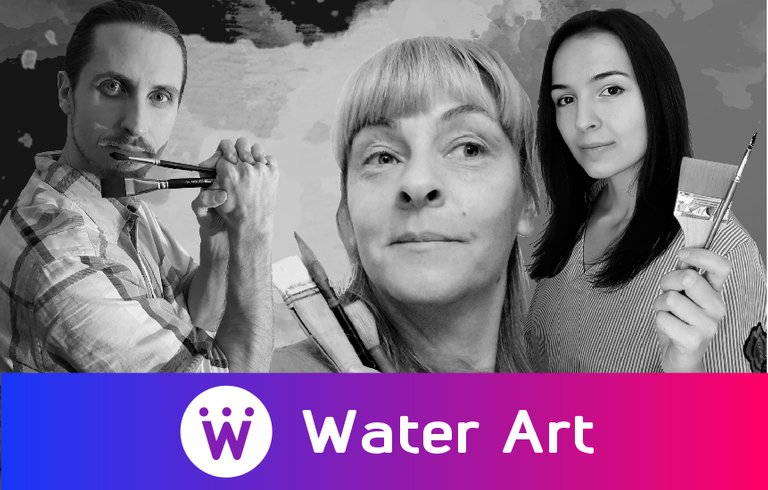Hello my watercolor friends! Here you are a new post from our Water-art project. In a previous 3 posts we were writing about watercolor paper. Now it is time to move to brushes.
Suitable brushes have the same importance as quality paper. We need to choose right to achieve nice results. We use flat hard brushes for tempera and acrylic mostly and round soft brushes for watercolors, but there are also exceptions. The paper surface is delicate and we do not want to demage it while using wrong brush.
There are many types of brushes. The difference is between their size, shape and material. Lets start with the material. It is said the best brushes for watercolor painting are made of sable hair. This brushes are not cheap and they are used by professional artists. There are also squirel, ox and goat brushes. We usualy see those soft hair in round brushes and harder (ox and goat) in flat ones.
(Synthetic fiber on left, squirrel on right)
Round brushes are mostly used for painting details and thin lines. When we want to paint big areas or backgrounds, we can use flat brush. It can carry more water and paint.
You do not need to buy expensive high quality brush to have nice results. Very good alternative which I prefer is synthetic fiber. Brushes made of this fiber are cheap and designed to imitate natural hair. It is the best choice for you if you just started with watercolor, but also good for skilled artists. I use them because they hold a point better then natural brushes. They are flexible and they return to the basic shape while painting. Soft natural hair miss this attribute, which is annoying when your hand is not stable enough. Synthetic brushes have also some disadvantages. The biggest is they can not hold as much paint as natural hair, but it never bothered me. I buy this brushes on ebay - set of 12 for 2.50 - 3.50€ - great price.

Now the shapes. I can offer you this summary.. But lets just say if you are a beginner you don´t need to buy set of 30 brushes of all shapes and sizes. For my paintings I use only those 7 brushes on the picture above - only round, detail round, pointed round and flat. There is also an option to buy a set of 10 or more synthetic brushes in many shapes for good price, if you want to try them all.

Burshes make different lines which depend also on the amount of water/paint and the paper structure/quality. You can try the difference by using one color.
When we summarize it, it is good to have 3 round brushes 3, 5, 12 size, one detail round (pointy, size 1). They can be all synthetic. If you are really serious about it, buy Kolinsky sable brushes. They are expensive, but represent the highest quality. It is good to have at leas one bigger flat brush. It can be synthetic too, or you can buy ox hair. When you start to paint you will notice which kind of brush you would need to buy next.
Thanks for watching!



In the link to the PDF file on the brush shapes, there was an interesting maintenance advice:
Just wondering how brush soap is different from normal soap? And what is in the brush care products?